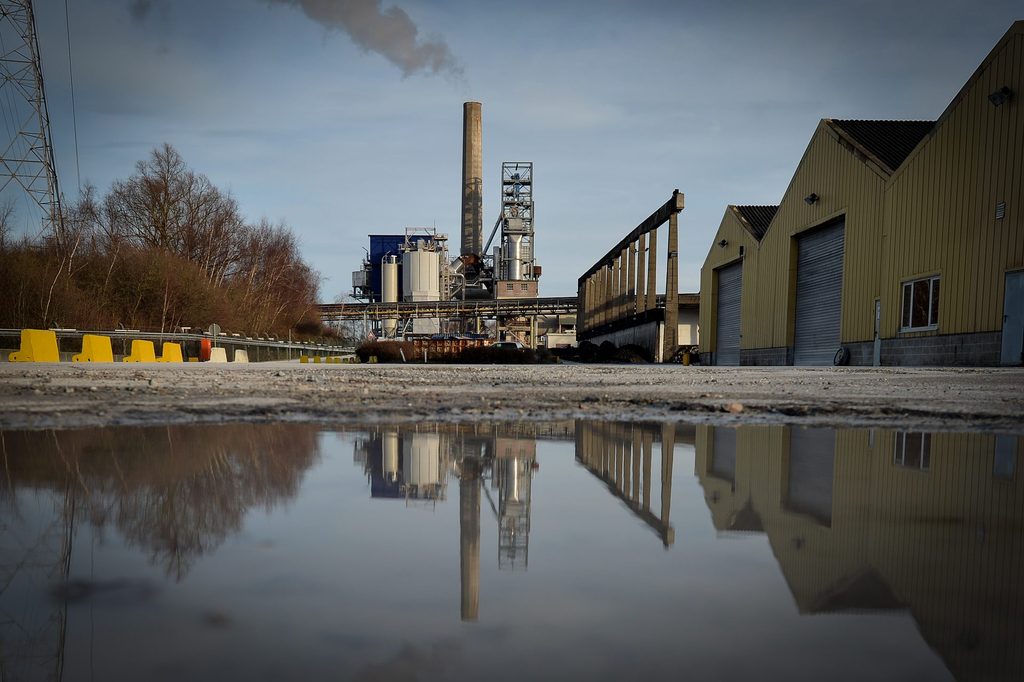A European Commission official has denied that Europe is facing widespread industrial decline, in comments that would appear to contradict experts' analysis as well as previous remarks by senior EU officials.
In written comments provided to The Brussels Times, the official noted that "avoiding deindustrialisation" is a "key priority for the Commission" but claimed that Europe's industrial sector remains vibrant.
"Official statistics do not show an overall trend of deindustrialisation in the EU," the official said. "In fact, industry in Europe is growing and its share of the EU economy (around 20%) has remained fairly stable over the last two decades."
The official's claims are only partially borne out by the data. According to the World Bank, industry's share of European GDP grew to 23.5% in 2022, up from 22.8% in 2021 and 22.6% in 2020.
However, industry's share of GDP has noticeably declined over the past few decades: in 2002, industry contributed 24.7% to the bloc's total GDP while in 1992 its share was 28.2%.
'A succession of crises'
Although adamant about the strength of Europe's industrial sector, the official admitted that "a succession of crises" has threatened the continent's industrial base in recent years. These include the Covid-19 pandemic, climate change, and the energy crisis triggered by Russia's ongoing war in Ukraine.
Intriguingly, the official failed to mention the Inflation Reduction Act (IRA) – a highly protectionist piece of legislation which provides up to $369 billion in green government subsidies to manufacturers based in the US – as a major potential threat to Europe's industry.
Such an omission is particularly striking, given that EU Internal Market Commissioner Thierry Breton has previously labelled the IRA as an "existential challenge" to the EU and urged fellow European policymakers to "revert the deindustrialisation process taking place."
Is Germany to blame?
Breton's fears appear to be largely well-founded. According to the latest data released by Eurostat, the EU's official statistics office, year-on-year European industrial production fell each month from March to June this year (the last four months for which there is data).
Furthermore, last week The Financial Times (FT) reported that month-on-month industrial production in Germany, Europe's largest economy, fell for the third consecutive month in July. "Germany's industrial production continues its nosedive and even diehard pessimists are getting frightened," senior ING economist Carsten Brzeski told the FT.
Germany's declining industrial production comes at the same time that business confidence in Germany has fallen to its lowest level in three years.
The ifo Institute, a Munich-based think tank, also recently highlighted "starkly pessimistic" sentiments in the country's manufacturing sector as well as a "continuing nosedive" in the construction industry. "Companies are increasingly pessimistic about the months ahead," the institute noted. "The German economy is not out of the woods yet."
Belgian industrial blues
Germany's economic struggles are likely to have a significant impact on Belgium. Germany is Belgium's biggest export market and its second-largest import supplier.
Indeed, Belgian industry representatives recently issued a stark warning about the dangers posed by high energy prices to the country's economy, noting that "urgent measures" are needed to reverse Belgium's "progressive deindustrialisation".
In a press release published last week, the Federation of Belgian Industrial Energy Consumers (Febeliec) also condemned Belgium's energy regulator, CREG, for failing to heed "alarming signals" issued over the past few months by the country's industrial sector.
Related News
- 'Increasingly pessimistic': German business confidence falls to lowest level in three years
- Europe is becoming a US 'vassal', leading think tank warns
"The competitive position of our industry in relation to neighbouring countries deteriorated last year," Febeliec noted. "Our companies are feeling the consequences of the energy price crisis more and more strongly, which generates significantly higher costs than in our neighbouring countries (and a fortiori the rest of the world)."
"Febeliec invites the Federal and Regional Governments to take urgent measures to quickly restore the competitiveness of our industry," it added.

